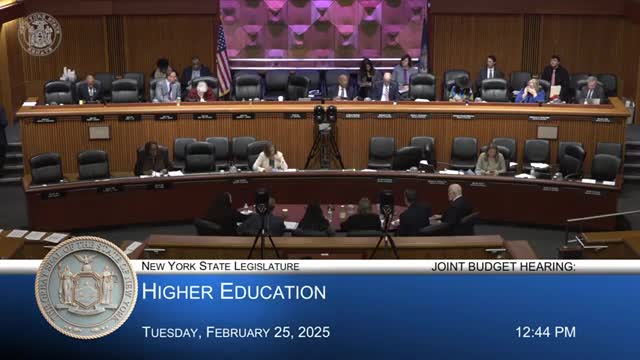Article not found
This article is no longer available. But don't worry—we've gathered other articles that discuss the same topic.
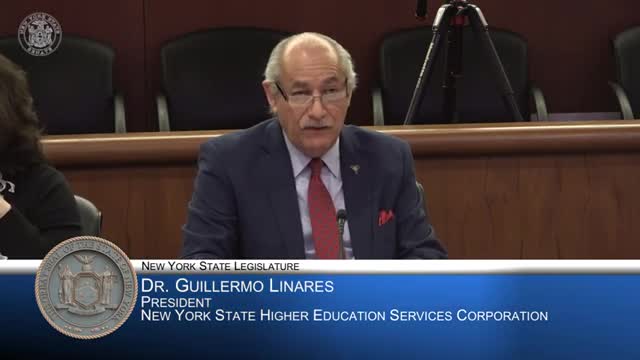
HESC tells lawmakers TAP, FAFSA outreach expanded; agency warns federal changes could increase demand
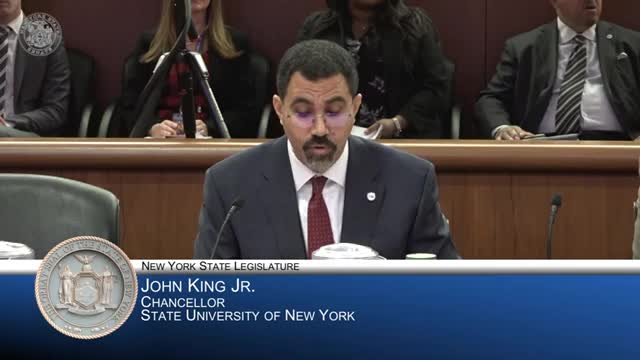
‘Opportunity Promise’ free community college proposal draws praise — colleges warn added operating aid is needed
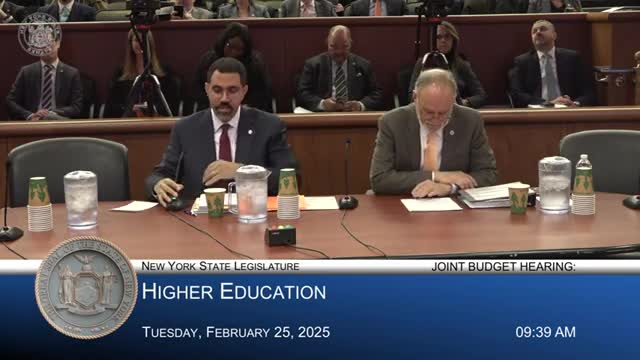
SUNY, CUNY chancellors urge more operating aid as hospitals, contracts and research pressures mount
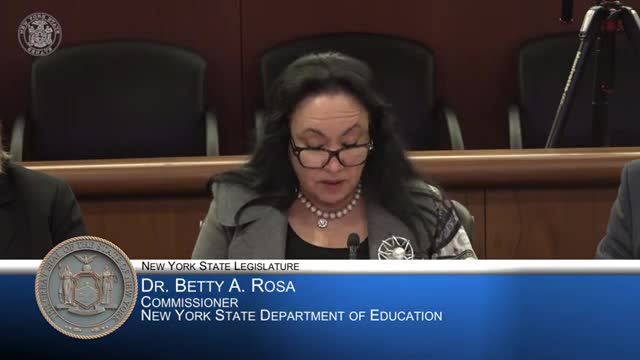
Liberty Partnership, STEP and CSTEP leaders warn proposed cuts would shrink STEM/health pipeline
